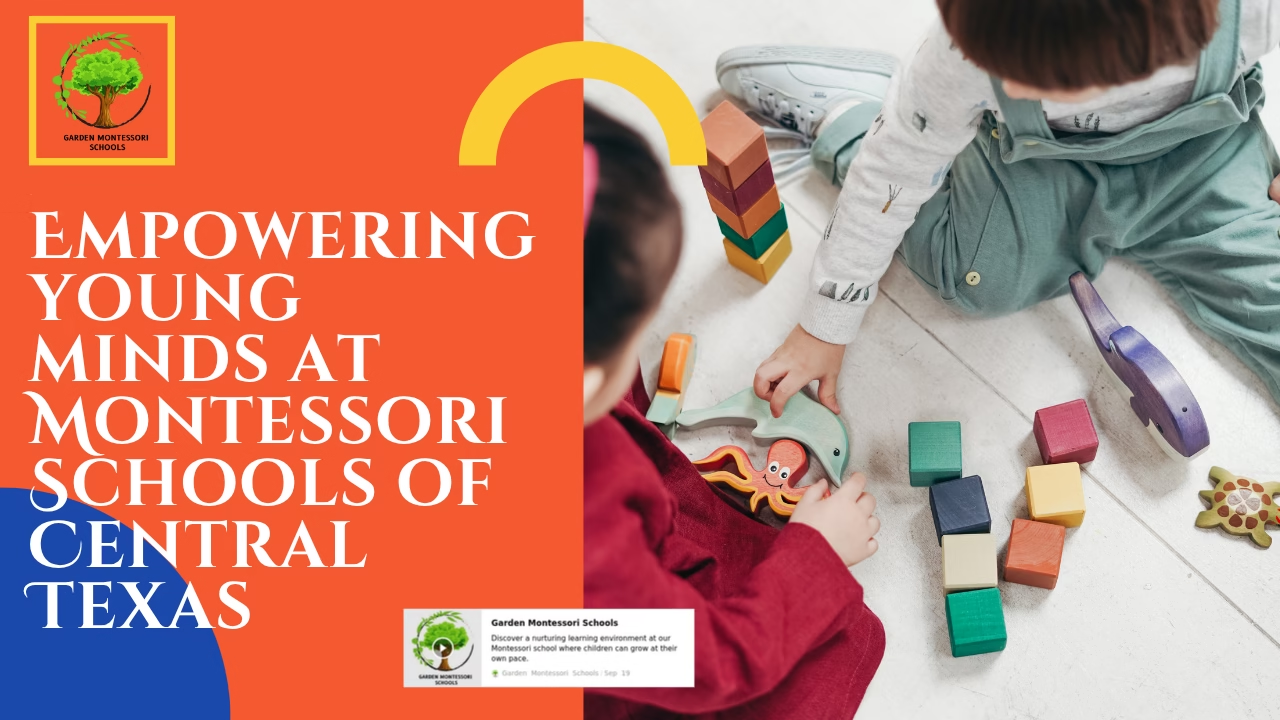This structured yet flexible setting provides children the chance to explore their surroundings, interact with peers, and engage in diverse activities that ignite their imagination.
GardenMontessoriSchools staff are trained to foster a child’s natural sense of wonder and guide them through creative expression, play-based learning, and critical thinking tasks.
As a result, attending a quality daycare can lay a strong foundation for lifelong learning and personal growth.
What Kind of Environment Boosts Creativity in GardenMontessorischools?
A well-designed daycare environment is key in promoting creativity and curiosity in children. Classrooms filled with colourful visuals, age-appropriate toys, and interactive learning stations stimulate children’s minds.
These elements encourage exploration and hands-on learning. Natural light, open play areas, and quiet reading corners also contribute to a balanced setting that nurtures both active play and thoughtful engagement.
When children feel safe and inspired, they are more likely to try new things, solve problems creatively, and develop unique ways of expressing themselves.
How Does Play-Based Learning Encourage Curiosity?
Play-based learning is a core approach through which daycare encourages curiosity and creativity in children. By incorporating storytelling, art, pretend play, and sensory activities into the daily routine, children are able to learn while having fun.
This method encourages them to think independently, ask questions, and explore multiple outcomes. Whether building with blocks or role-playing in a mini kitchen, every activity is designed to spark imagination and critical thinking.
Parents seeking to understand the value of play-based learning can refer to this external resource from NAEYC for more insights.
Why Is Social Interaction Important for Creativity?
GardenMontessoriSchools settings naturally promote social interaction, which is another avenue where curiosity and creativity in children are nurtured.
Group activities such as collaborative art projects, group storytelling, and shared games teach children to express themselves, listen to others, and respect different perspectives.
Through peer interaction, children also learn emotional intelligence and develop the confidence to voice their ideas and feelings.These early experiences not only help in emotional regulation but also spark innovative thinking through shared experiences.
How Do Educators Facilitate Curiosity and Creativity?
GardenMontessoriSchools educators play a vital role in how daycare encourages curiosity and creativity in children. Their observations and interventions are strategically aligned to inspire curiosity and challenge young minds.
Teachers often use open-ended questions, introduce new materials, and adapt activities to suit a child’s interests and developmental level.
When educators model curiosity and creativity themselves, it sets a powerful example for children. Additionally, training programs such as those provided by GMS help staff stay updated on effective strategies for creative education.
FAQs
At what age does daycare begin to influence creativity?
From as early as 12 months, daycare can influence creativity through sensory activities and social interaction.
What activities best promote creativity in gardenmontessorischools?
Storytelling, arts and crafts, pretend play, and music are among the most effective.
Can daycare benefit shy or introverted children?
Yes, the structured social setting helps shy children express themselves at their own pace.
Conclusion
GardenMontessoriSchools encourages curiosity and creativity in children by blending play, learning, and exploration in a nurturing environment.



